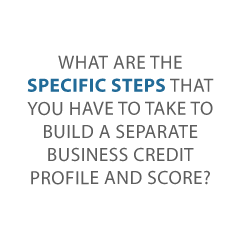
5 Cash Flow Based Lending Options to Take Your Business to the Next Level
Cash flow based lending options can be great for fast funding. Both PayPal and Square offer these types of options. Credit Suite has similar options as well, including:
- Revenue Based Lending
- Purchase Order Financing
- And Accounts Receivable Financing.
Using these types of funding allows you to get the funds you need based on income and without good credit. Repayment is typically based on cash flow as well, meaning the more you make, the faster you repay the loan.
Cash Flow Based Lending Options Can Help You Fund Your Business Fast
Cash flow based lending options are those that are extended based on a company’s expected cash flows. This refers to the amount of cash that goes in and out of a business within a specific period of time. The amount of cash flow is what lenders use to make approval decisions. Repayment comes from this amount as well.
Typically, you will need to have a few years in business to qualify. You may also need to meet a certain minimum credit score requirement. Mostly, you will need to prove historical cash flow, and present your accounts receivables and accounts payables. This is how the lender will determine how much to loan to your business.
There are a number of cash flow based lending options available. Some service providers offer this type of funding, such as PayPal and Square. There are also funding types through other lenders that are closely related, such as those that rely on your accounts receivable or open invoices.
Here’s a little about each one to help you decide if this type of funding is right for you.
#1: PayPal Working Capital Loan
You can get a loan from PayPal if you already have a PayPal business account. There is no personal guarantee requirement, and loan amounts and eligibility depend on your sales via PayPal. Also, applying will not result in a credit check.
To be eligible, you must:
- Have a PayPal Premier or Business account for 90 days or more
- Process at least $20,000 in annual PayPal sales if you have a Premier account, or at least $15,000 in annual PayPal sales if you have a Business PayPal account
- Pay off any existing PayPal Working Capital loan
Repayment is automatic as a percentage of each PayPal sale. As a result, the amount you repay each day changes with your sales volume. The more you sell, the more repayment progress you’ll make that day. On days without sales, you’ll make no payments. Yet, there is a minimum repayment requirement every 90 days.
Depending on the loan terms you choose, you have to pay at least 5% or 10% of your total loan amount, that’s the loan plus the fixed fee, every 90 days. The 5% minimum applies to loans estimated to take 12 months or more to be repaid, based on your business’ past PayPal sales and other factors. The 10% minimum applies to loans that should only take 12 months or less to repay.
#2: Square
You can get similar business loans through Square, and they also will not affect your personal credit score. Eligibility is based on a variety of business factors, including its payment processing volume, account history, and payment frequency. Square will send a customized offer to users based on their card sales through Square, up to $250,000. There is no interest per se. Rather, you’ll pay an ongoing flat fee.
The fixed fee is the difference between the total owed amount and the initial loan amount. The fixed fee will never change, regardless of how quickly or slowly you pay off the loan. Just like PayPal, if sales are up one day, you pay more. Consequently, if you have a slow day, you pay less. A minimum of 1/18 of the initial balance must be repaid every 60 days.
They don’t require collateral for business loans of $75,000 or less. In contrast, for loans over $75,000, they take a security interest in your business assets. Then they will file a UCC statement with the Secretary of State where your business is organized. There is no personal guarantee requirement.
#3: Business Revenue Lending
With a similar basis for getting funding, business revenue lending is another of the cash flow based lending options.
It involves raising capital from investors, who then get a percentage of the enterprise’s ongoing gross revenues in exchange for money invested. Investors get a regular share of business income until the agreed upon amount is paid. Often, this amount is a multiple of the principal investment. It is usually between 3 – 5 times the original amount.
Since repayment of the loan is based on revenues, the time it takes to repay the loan will fluctuate. The faster revenue grows, the quicker you’ll repay the loan, and vice versa. The percentage of monthly revenues committed to repayment can be as high as 10%. Monthly payments will fluctuate with revenue highs and lows and will continue until you pay the loan in full.
Terms for the Credit Suite business revenue lending program are:
- Collateral Required: Consistent revenue verifiable through bank statements
- Loan Amounts: $5,000-$500,000
- Term: 3-36 months
- Factor: 1.10-1.45%
- Credit Requirements: 500 credit score or higher
- No recent bankruptcies
- Business must earn annual revenue of $120,000 or more per year
- You must be in business for a year or more
- The business must do over 5 small transactions each month
- Or bring in at least $15,000 monthly revenue with 6 months’ time in business
- Financial services industries are prohibited
- 6 months business bank statements required with application
#4: Account Receivable Financing
AR financing is another of the cash flow based lending options available. It allows you to use outstanding account receivables as your collateral for business financing. You can get as much as 90% of receivables advanced, and you get the balance after the invoice is paid in full.
Terms for Credit Suite account receivable financing are:
- Collateral Required: Account receivables
- Loan Amounts: $10,000- $10 million
- Term: Up to 95% of receivables can be advanced within a week.
- Rates: Starting at prime rate 2%
- Credit Requirements: Minimum 500 FICO score
- Receivables must come from another business or government agency, not an individual
- Business must be open for at least 1 year to qualify
- Medical receivables must have $1 million in annual sales or more
- Breakdown of existing receivables and a sample invoice required with application
#5: Purchase Order Financing
PO financing is also closely related. This is funding to a business with a large purchase order or contract, but the business is unable to fulfill it. A lender loans the money to complete the order, and charges a percentage for the service. The company can then fulfill its order or contract.
The difference between purchase order and accounts receivable financing is, purchase order financing involves a company lending you money to fulfill purchase orders. Accounts receivable financing involves a company buying outstanding invoices. However, when you get to the center of it all, both are based on cash flow.
Credit Suite purchase order financing requirements:
For approval, lenders will typically review your outstanding purchase orders that need to be filled. They want to be sure the purchase orders are legit and the suppliers you are dealing with are credible.
If so, then you can get approval regardless of personal credit history. Rates tend to range from 1-4%. Furthermore, in some instances, you can get 95% of your purchase order in advance.
Cash Flow Based Lending Options Can Help Take Your Business to the Next Level
The beautiful thing about cash flow based lending is, you can get funds even without a strong credit score. If you are making the sales, you can get the money. That makes it easier to fulfill orders and keep making sales, which in turn allows you to grow your business bigger and stronger than ever.
The post 5 Cash Flow Based Lending Options to Take Your Business to the Next Level appeared first on Credit Suite.






